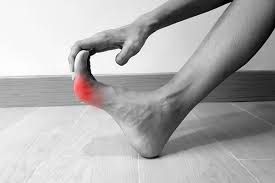
How bunions can affect your overall health
How bunions can affect your overall health
What is a bunion?
A bunion is bone deformity. The bones in the foot begin to drift out of place over time making a large bump by the big toe. A bunion is not a growth, rather it is a malalignment of bones.
Who gets bunions?
Anyone can get bunions. Genetics is more than likely the biggest reason that bunions develop. Injuries can sometimes lead to bunions as well as poor shoewear.
How do bunions affect my life?
Bunions can change the way you walk
Because bunions are painful, you may alter the way your foot rolls from heel to toe when walking. When your gait is off, your whole body compensates for the change and may develop soreness or joint problems in other areas.
Bunions can cause knee and hip pain
You might call this a secondary effect of bunions. If your bunion pain changes your gait, your knees and hips are the first to notice. The extra stress on those joints causes pain in your joints and overall fatigue.
Bunions can damage your other toes
A bunion can become severe enough to start cramping your other toes. This can lead to painful hammertoes, crossover toes and blisters that make it very difficult to be in shoes. A callus can also develop on the ball of the foot making it painful to walk.
Bunions can lead to osteoarthritis
Over time the malalignment from a bunion can lead to osteoarthritis in the big toe joint. With osteoarthritis of the big toe, large bone spurs usually develop on top of the toe leading to pain and decreased motion. This usually affects shoewear and certain activities like stooping down and running.
What causes bunions?
Most people with bunions inherit them from genetics. Some people will develop them as teenagers while others will develop them decades later. Sometimes having flat feet and overpronation (when the foot rolls too far inward) cause abnormal foot biomechanics and pressure which can lead to bunions. Injuries to the great toe can lead to what is known as a traumatic bunion.
Regardless of the cause, bunions get progressively worse without treatment, and the normal structure of the bone begins to permanently change.
What can be done?
Bunion treatment usually begins with altering shoewear. Shoes tend to cause a lot of pain because the big toe rubs on the inside of the shoe. Wider shoes and sometimes inserts can help alleviate the pain from bunions. Spacers and splints can be beneficial but do not correct the problem. Non-surgical treatment aims to alleviate the pain, not fix the root problem. When non-surgical treatment fails or patients want to fix the problem, surgery is warranted.
There are more than 100 surgeries to fix bunions. Throughout the years physicians have tried many different approaches to treating bunions.
Recently, our understanding of bunions has increased and we have realized that the old treatments did not fully address the whole problem. Bunions are complex, multiplane deformities that require a surgery that systematically addresses all issues. Lapiplasty® was developed to address the root cause of bunions. Lapiplasty® fixes the unstable joint in the midfoot that causes the bunion problem. Once the bunion is fixed correctly, the chances of it coming back are very low.
The Lapiplasty® system uses precise cutting guides and bunion reduction tools to place the big toe back in correct, anatomical alignment. Titanium plates and screws are then used to fuse the joint so it does not move out of position. Patients usually begin walking about a week after surgery in an orthopedic boot.
If you are struggling with bunions, consider scheduling a visit with Dr. Justin Daigre at DOC Orthopaedics in Decatur or Hartselle. Dr. Daigre dedicated a year to fellowship train in foot and ankle surgery after orthopedic residency. Dr. Daigre also helps teach other surgeons how to use the Lapiplasty system and has himself performed over 150 Lapiplasty surgeries in Decatur.
If you’re ready to kick your bunion issues once and for all, reach out to DOC Orthopaedics for a consultation by calling 256-530-0362.

